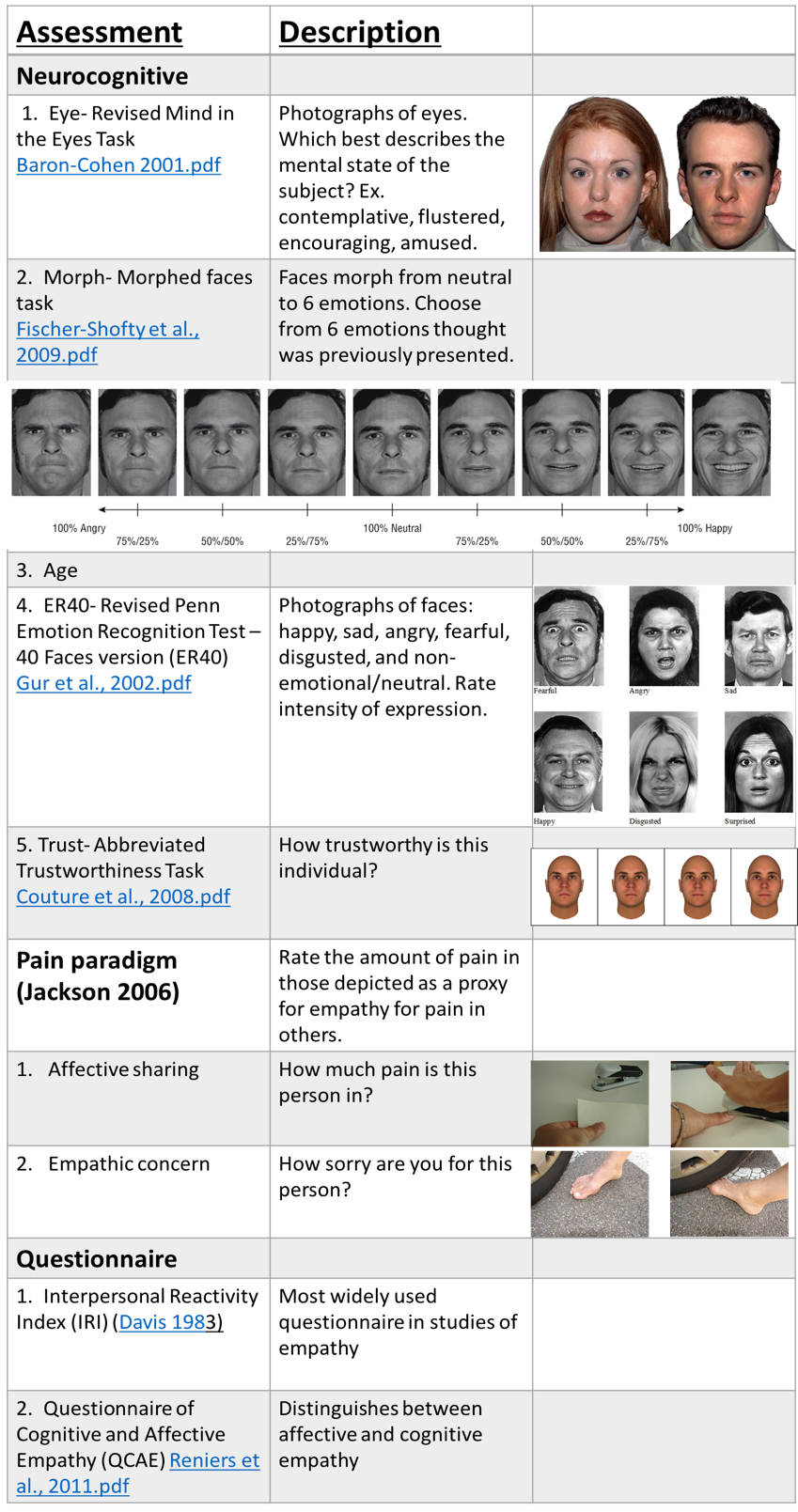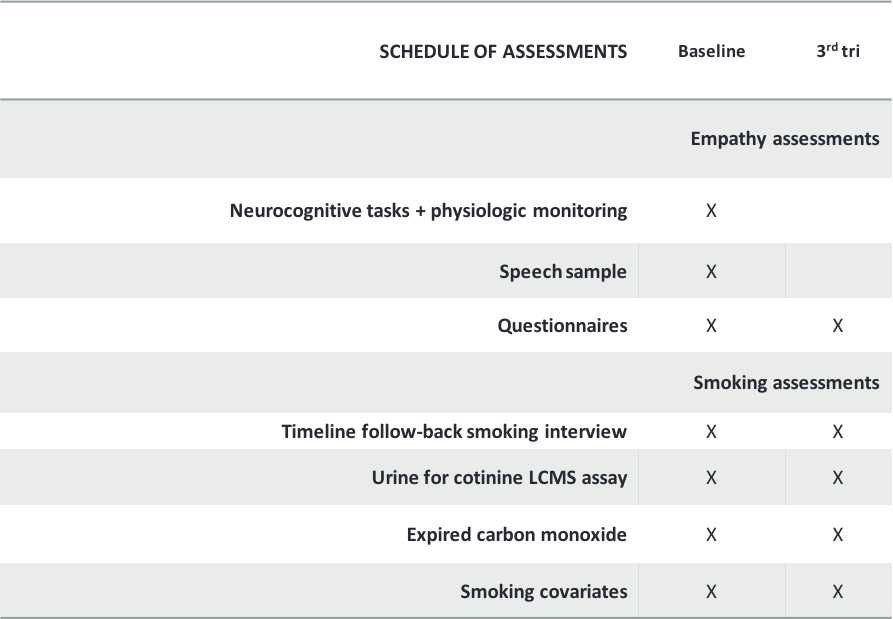Presenting Author:
Amy Curtis, M.D.
Principal Investigator:
Suena Massey, M.D.
Department:
Psychiatry and Behavioral Sciences
Keywords:
prenatal, pregnant, smoking, smoking cessation, tobacco, empathy, women's health, maternal, fetal, development, behavior... [Read full text]
Location:
Third Floor, Feinberg Pavilion, Northwestern Memorial Hospital
PH56 - Public Health & Social Sciences Women's Health Research
Social Information Processing Ability and Change in Cigarette Smoking During Pregnancy: Testing a Novel Social-Cognitive-Affiliative Model of Health Behavior Change.
Background. Maternal smoking during pregnancy (MSDP) is a common modifiable risk factor for adverse neurodevelopmental, metabolic, and cardiovascular outcomes in exposed offspring across the lifespan. Increasing prenatal smoking cessation rates are of enormous public health importance. Around half of women who smoke cigarettes quit abruptly upon recognizing pregnancy and achieve unparalleled abstinence rates for the duration of gestation without treatment, while the remaining smokers are largely resistant to existing interventions. Thus, pregnancy appears to be associated with unique, yet-to-be identified processes that facilitate changes in smoking behavior in a fashion that varies inter-individually. We previously demonstrated an inverse relationship between MSDP and empathic ability measured many years after pregnancy, moderated by oxytocinergic function. Extending this work in a new cohort, we report interim findings from an ongoing study to test the hypothesis that women who continued smoking after discovering their pregnancy (persistent smokers) have empathic deficits, measured during pregnancy, relative to women who quit (spontaneous quitters). Methods. Forty women who were smoking at the time of their last menstrual period were assessed for empathy in early pregnancy (M=16.8 weeks gestation) using performance-based neurocognitive tasks linked to neuroanatomical correlates of empathy and theory of mind (pain paradigm; emotion recognition in eyes, faces and morphed faces; trustworthiness and age tasks). Women were categorized into spontaneous quitter/persistent smoker groups from baseline expired carbon monoxide, nicotine metabolites in urine, and timeline follow-back interviews of daily smoking. To specifically examine natural processes of behavior change, women receiving treatment for smoking cessation were excluded. Results. Cognitive empathy: Persistent smokers exhibited reduction in the ability to discern trustworthiness from presented facial images relative to spontaneous quitters (0.27 ± 0.4 vs. 0.34 ± 0.1, p = .03). Affective empathy: Differences between persistent smokers and spontaneous quitters were not significant (50.34 ± 28.9 vs. 62.68 ± 32.8, p = 0.28 for affective sharing, and 52.88 ± 31.0, 55.52 ± 36.1, p = 0.83 for empathic concern, respectively). Conclusion. This is the first study to examine empathic ability in pregnant women, and to suggest decrements in empathic ability in persistent smokers relative to spontaneous quitters. Adding neuroimaging in future studies could further elucidate this novel empathy-based mechanism of prenatal smoking behavior change. As empathic abilities in mothers are foundational in shaping children's mental health trajectories, this mechanism may also constitute a previously unrecognized pathway through which MSDP influences neurodevelopmental complications. Funding. This study was supported by grant 5K23DA037913 from the National Institute on Drug Abuse to Dr. Massey.


